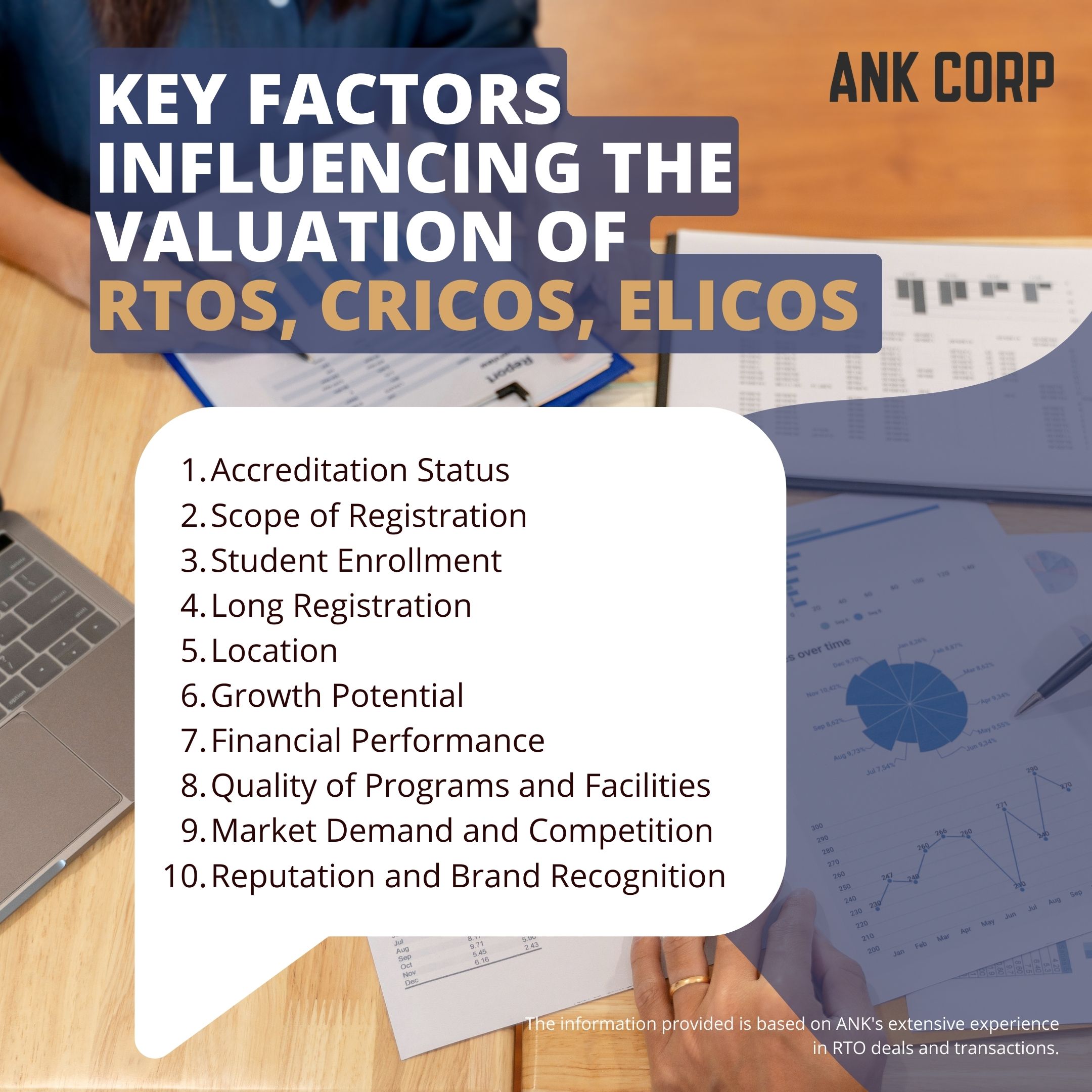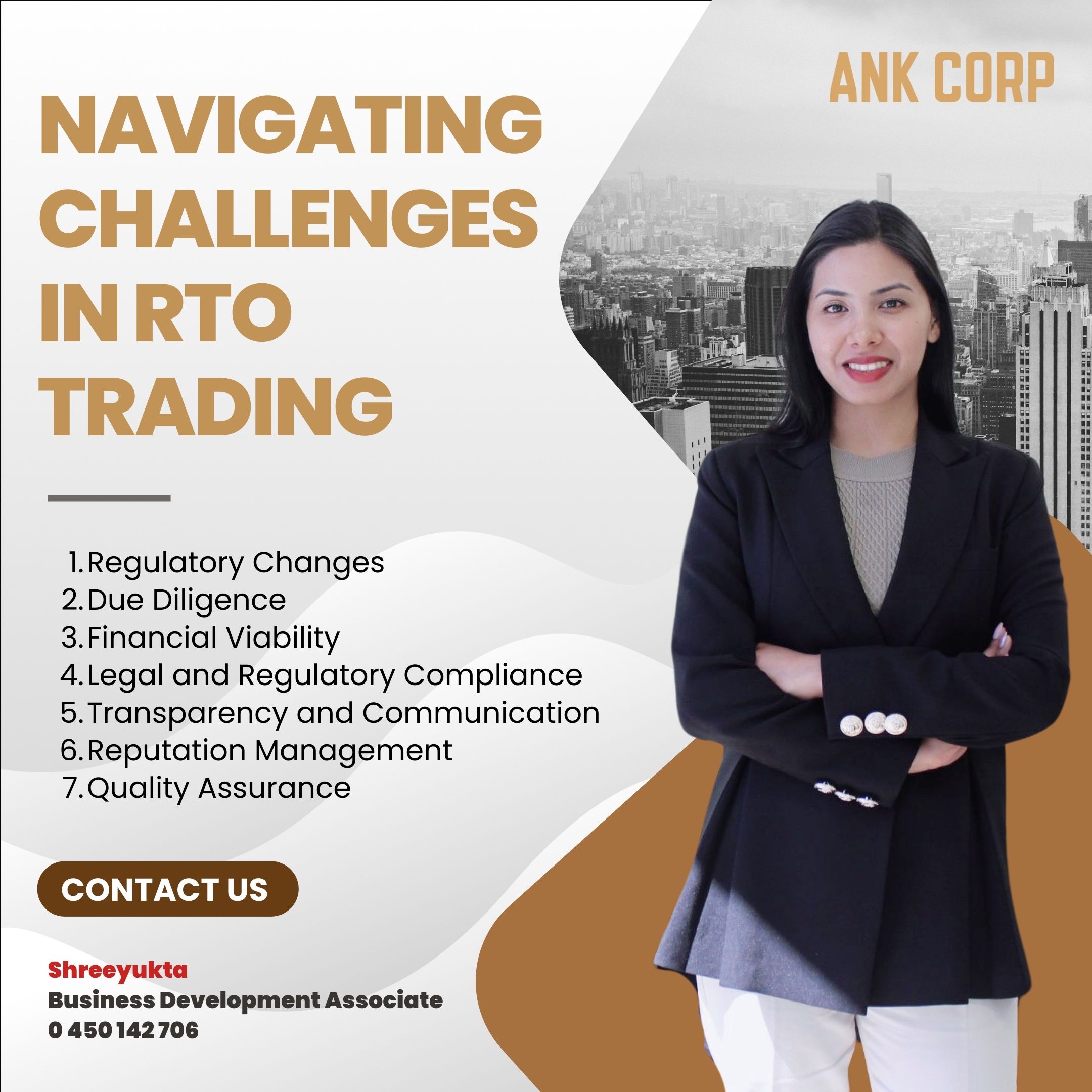In today’s dynamic educational landscape, the process of buying and selling Registered Training Organizations (RTOs) comes with its own set of challenges. From regulatory compliance to market positioning, navigating these complexities requires strategic planning and execution. Here are key strategies to overcome these hurdles and achieve successful transactions: By implementing these strategies, RTOs can navigate
Understanding what shapes the value of educational institutions is crucial for investors and stakeholders. Let’s delve into the key factors, drawing from ANK’s expertise in RTO deals:
1. Accreditation Status: Institutions with full accreditation and clean records are seen as credible and can fetch higher prices.
2. Scope of Registration: The range of qualifications offered affects valuation. Institutions offering diverse courses attract more demand and higher valuations.
3. Student Enrollment: A higher number of students typically signifies stability and financial health, rendering an operating institution more appealing to investors. This is why operating institutions generally command better prices than shell entities, with CRICOS institutions often valued higher than domestic ones.
4. Quality of Programs and Facilities: Modern facilities and high teaching standards drive up an institution’s value.
5. Market Demand and Competition: Institutions offering high-demand courses or unique programs can stand out in the market, influencing their valuation positively.
6. Longevity of Registration: Consistent compliance over time enhances reputation and stability, positively impacting valuation.
7. Reputation and Brand Recognition: Established institutions with strong reputations fetch premium prices.
8. Location: Geographical positioning matters. Institutions in high-demand areas tend to have higher valuations.
9. Growth Potential: Expansion plans and market opportunities influence valuation.
10. Financial Performance: Consistent revenue and profitability drive higher valuations.
In conclusion, the valuation of educational institutions is multifaceted, influenced by numerous factors. The information provided is based on ANK’s subjective perspective. For further insights or assistance, feel free to reach out to ANK.




